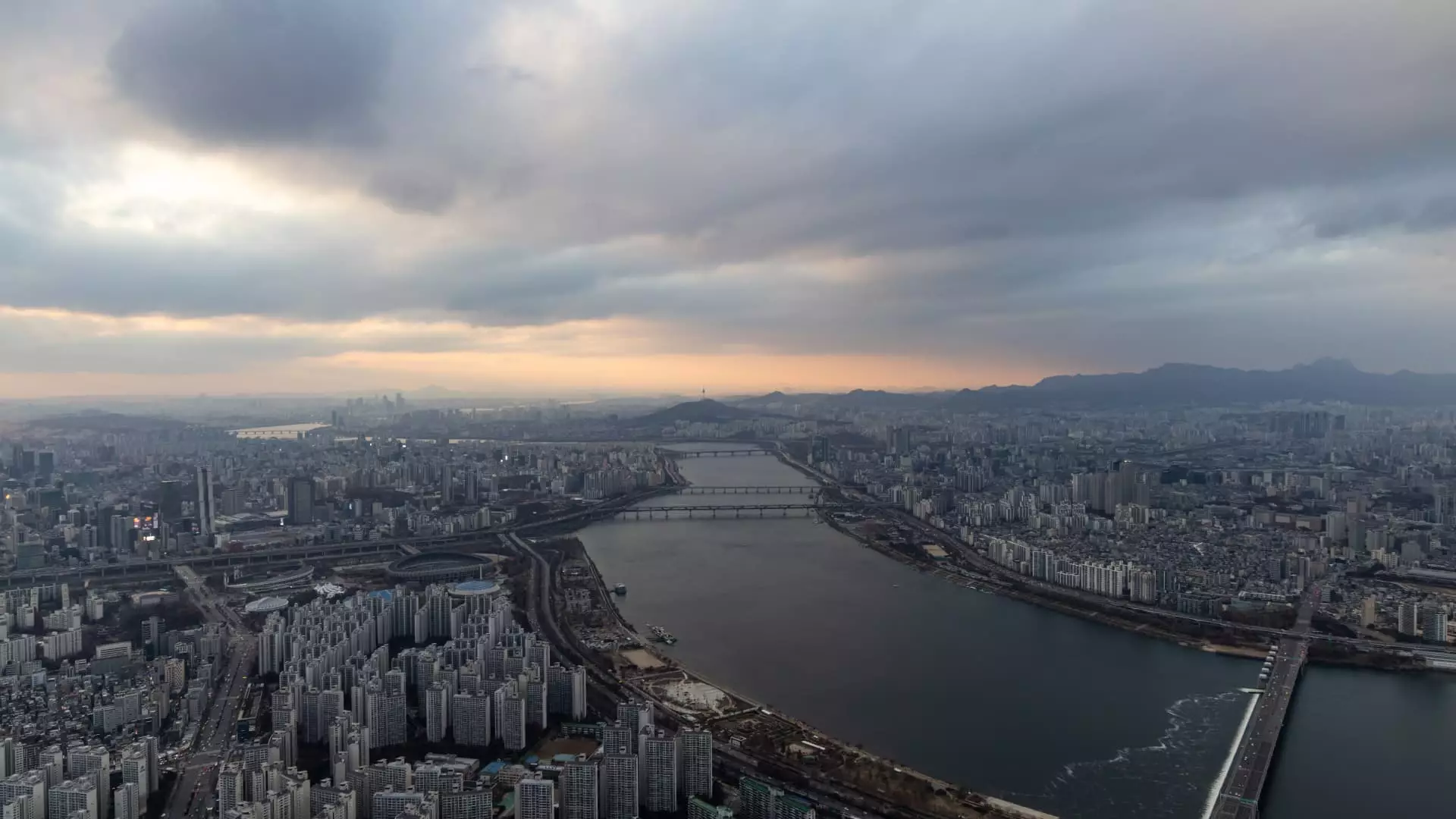In a stark revelation that sends ripples through the global economic landscape, South Korea’s economy contracted by 0.1% year-on-year in the first quarter of the year. This marks a significant moment since it is the first contraction reported since the dismal economic climate of late 2020. Expectations were set higher, anticipating a modest growth of 0.1%, as suggested by a Reuters poll. The trend appears to be a grim departure from the 1.2% growth witnessed in the closing quarter of 2024. The data emerging from the Bank of Korea is nothing short of a wake-up call, particularly as the construction sector, a vital pillar of the economy, saw an alarming contraction of 12.4% year-on-year.
Such a scenario not only reflects faltering domestic economic activity but also indicates that dark clouds of political instability may be looming over the nation. It is abundantly clear that structural weaknesses have prevented South Korea from generating the momentum required to sustain growth amidst external pressures.
Fiscal Responses and Predictions
Given the economic precarity, the Bank of Korea recently warned that the growth forecast for 2025 has been revised downwards from 1.5%. Holding the interest rates steady at 2.75% seemingly lacks the robustness needed to navigate these uncharted waters. The concerns voiced by economists like Jeff Ng from Sumitomo Mitsui reflect a growing unease: further rate cuts could be on the horizon, likely as soon as May.
This anticipated action raises eyebrows among casual observers and economic analysts alike. One can only wonder if the central bank is genuinely equipped to counteract the multifaceted threats posed by domestic political upheaval and eroding global trade conditions. As many analysts speculate that a “stronger policy response” is urgently needed, the lack of immediate decisive action leaves one questioning the authorities’ resolve to act swiftly and decisively.
Political Uncertainty: A Sphere of Influence
What compounds this economic malaise is the ongoing political quagmire. With the recent impeachment trials of former president Yoon Suk Yeol and prime minister Han Duck-soo dominating headlines, the political climate has become poisoned with uncertainty. The restoration of Han as acting president provides little solace. The looming elections set for June 3 will usher in a new political landscape, but the prolonged turmoil undoubtedly poses significant risks to domestic consumer confidence, a critical component for economic revival.
As the government grapples with high-stakes negotiations with the U.S. amid a turbulent trade war, the potential repercussions remain unclear. South Korean exports, particularly in steel and automobiles, are incurring tariffs significantly hampering market competitiveness in what has traditionally been a robust export-led economy.
The Looming Trade War: Strategic Considerations
The current state of U.S.-South Korea trade relations serves as a double-edged sword: while prospects for a favorable trade agreement exist, electoral uncertainty may prolong negotiations and leave South Korea vulnerable. The uncertainty surrounding the outcome of the upcoming elections casts doubt on potential agreements, as new leadership will invariably influence trade policy direction. The stakes are high, and the implications for companies such as Hyundai and Kia, which rank among the top-selling international brands in the U.S., cannot be overstated.
The urgency for South Korea’s administration to secure strategic deals that would reinvigorate trade relations cannot be overstated. Acting president Han’s statement regarding trade negotiations with the U.S. being poised to yield mutual benefits glimmers with optimism yet begs the question: will the government be able to act decisively enough to overcome domestic turbulence and external pressures?
As South Koreans brace for impending elections and the accompanying uncertainty, one can’t help but feel that likes of instability significantly hinder the prospects for an economic rebound. The looming specter of contractions, coupled with the nation’s delicate political landscape, requires prompt, competent, and strategic responses to avert a far deeper crisis. The future rests precariously on South Korea’s ability to stabilize its political framework while simultaneously curbing economic downturns. In a world teetering on the brink of economic volatility, the pressures are mounting, and it’s high time for proactive governance.



Leave a Reply